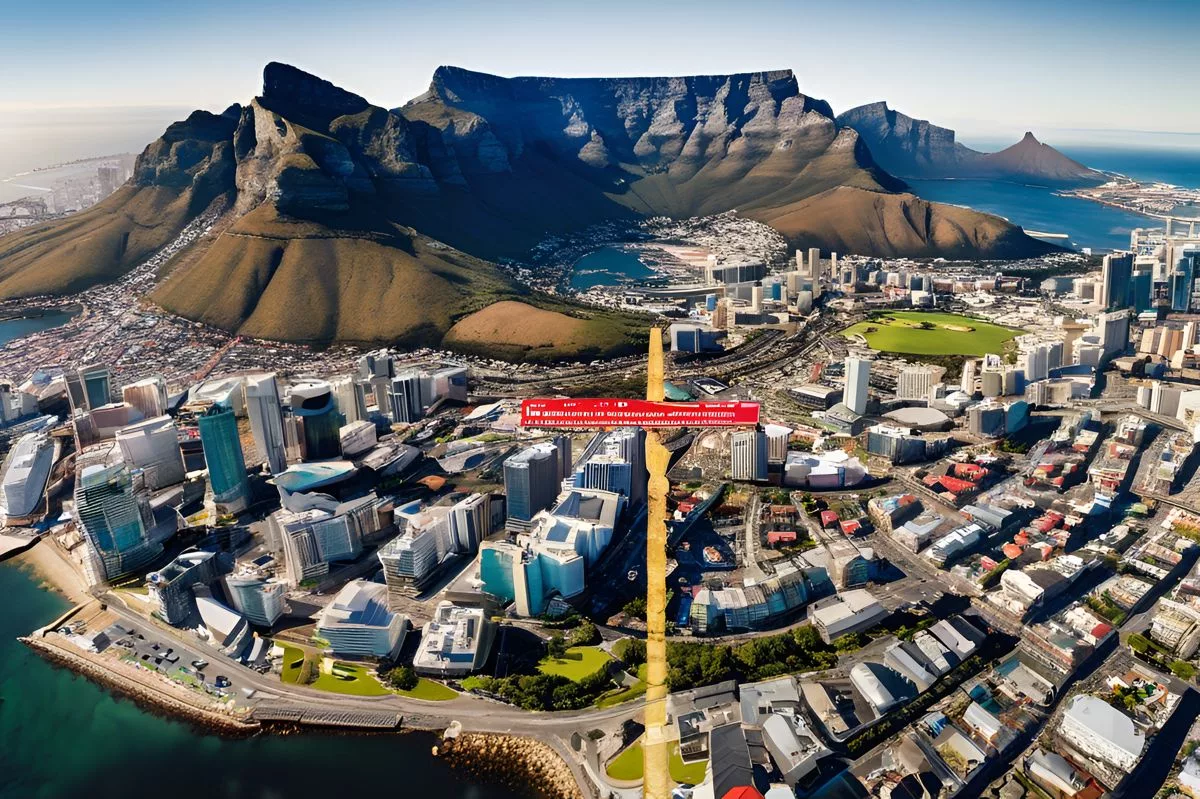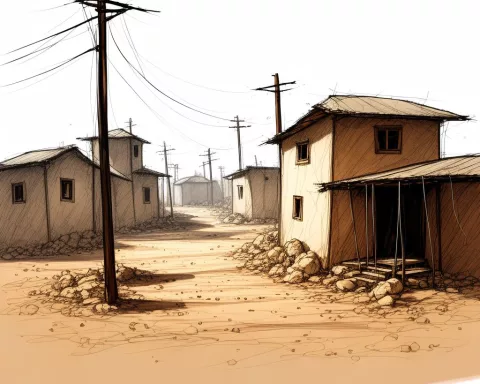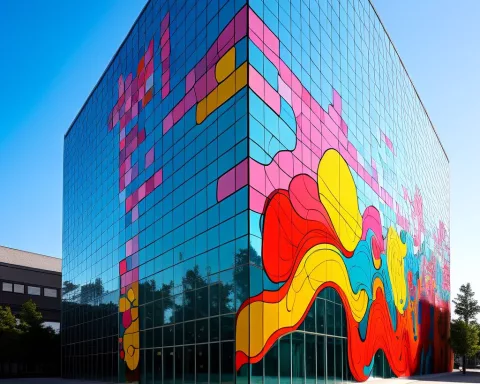Cape Town is on an exciting journey to transform its neighborhoods through property auctions. On October 2, 2024, a special auction showcased 45 diverse properties, from homes to business spaces, all set in the city’s vibrant areas like Woodstock and Century City. This initiative aims to boost the economy, create jobs, and bring communities together while honoring Cape Town’s rich culture. As the city embraces modern development and sustainable practices, it looks forward to a bright and inclusive future, where everyone can thrive together.
What is Cape Town’s vision for urban transformation through property auctions?
Cape Town’s vision for urban transformation focuses on leveraging diverse neighborhoods through strategic property auctions. These auctions stimulate economic growth, promote community inclusivity, and ensure sustainable development, ultimately revitalizing the city’s landscape while preserving its rich cultural heritage.
Cape Town, a city defined by its dynamic urban landscape, took a significant step on October 2, 2024, with a property auction that highlights its commitment to economic dynamism and urban renewal. This event was more than a real estate exchange; it exemplified Cape Town’s strategic vision to leverage its diverse neighborhoods for broader development goals. In the heart of this transformation lies a vibrant city eager to unlock its potential through innovative approaches to urban planning.
Diverse Offerings Across Iconic Neighborhoods
The auction featured a variety of 45 properties, ranging from residential and commercial to community and industrial plots, each located in notable areas like Constantia, Plumstead, and Woodstock. These neighborhoods reflect Cape Town’s historical and cultural richness, offering participants an opportunity to engage with the city’s evolving narrative. Each plot represents more than just land; it is a piece of Cape Town’s rich history and cultural tapestry, inviting bidders to become a part of the city’s transformation.
Woodstock, known for its artistic and cultural significance, plays a pivotal role in this narrative. The inclusion of enhanced residential properties from this area allows for a fusion of heritage and modernity. Developers are encouraged to innovate while maintaining the cultural vibrancy that characterizes Cape Town, ensuring that the past and future coexist harmoniously.
Strategic Commercial Development and Urban Growth
The auction also highlighted significant commercial opportunities, particularly in business-centric locations like Fish Hoek and Century City. These areas are vital cogs in Cape Town’s economic machine, recognized for their contribution to the city’s business-friendly environment. By releasing these properties for commercial ventures, Cape Town emphasizes its dedication to strengthening its position as a hub of economic activity. Century City, with its impressive urban planning, stands as a testament to the city’s commitment to progress and innovation.
This auction process is not without its challenges. A stringent review period of 15 business days, conducted by the Immovable Property Adjudication Committee, ensures that the bidding process remains transparent and fair. This oversight reflects Cape Town’s commitment to ethical governance and strengthens the trust between city officials and investors. Such diligence in the auction process underscores the city’s dedication to fostering a reliable and accountable economic environment.
Strategic Vision for Economic Growth and Sustainability
Alderman James Vos, who serves as the Mayoral Committee Member for Economic Growth, expressed the auction’s role in Cape Town’s strategic outlook. By transforming surplus land into spaces of development, the city stimulates economic vitality, generating revenue and creating jobs. This initiative aligns with a broader global trend where cities actively engage their underutilized assets to drive growth. Cape Town aims to foster an environment that encourages private investment, leading to innovative solutions and improved service delivery.
This proactive stance mirrors urban transformations seen in global cities. Projects like New York’s High Line and London’s King’s Cross have revitalized urban landscapes, serving as inspirations for Cape Town’s endeavors. These auctions aim to ignite similar economic rejuvenation and cultural vibrancy, reflecting successful international models of urban redevelopment.
Socio-Cultural and Environmental Impacts
Beyond economic benefits, the properties auctioned have the potential to positively influence Cape Town’s socio-cultural landscape. By inviting a mix of residential and commercial developments, the city is positioned to create vibrant, mixed-use environments. These areas promote community and inclusivity, offering residents spaces that enrich their daily lives, extending beyond mere habitation and workspaces.
The revenue from these auctions is reinvested into the community, enhancing essential services and infrastructure projects that improve the quality of life for all Cape Town residents. This reinvestment underscores the city’s commitment to equitable development, ensuring that growth benefits are widely shared and contribute to building resilient urban environments.
Moreover, Cape Town’s focus on development aligns with its aspiration to become a leader in sustainable urban growth. Prioritizing eco-friendly practices in new developments allows the city to tackle climate change and urban ecological challenges. This commitment to sustainability ensures that Cape Town grows not only economically but also responsibly, balancing progress with environmental stewardship.
A City in Motion
Cape Town’s property auctions encapsulate its broader aspirations, embodying a city poised for transformation. By harnessing the potential of its diverse landscapes and embracing modern urban development, Cape Town continues to evolve. These auctions represent a pivotal chapter in the city’s journey toward a prosperous and inclusive future, shaping both its skyline and spirit for generations to come. As Cape Town moves forward, these auctions will leave a lasting mark, driving the city toward a future of sustained growth and community enrichment.
“`markdown
FAQ
What is the purpose of Cape Town’s property auctions?
The property auctions in Cape Town aim to stimulate economic growth, create jobs, and foster community inclusivity. By offering diverse properties for sale, the city seeks to revitalize neighborhoods while maintaining its rich cultural heritage.
When did the latest property auction take place and how many properties were featured?
The latest property auction occurred on October 2, 2024, showcasing 45 diverse properties ranging from residential homes to commercial spaces in iconic neighborhoods such as Woodstock and Century City.
How does Cape Town ensure transparency in the auction process?
Cape Town employs a stringent review period of 15 business days conducted by the Immovable Property Adjudication Committee. This oversight ensures that the bidding process is fair and transparent, reinforcing trust between city officials and investors.
What types of properties are available in the auctions?
The auctions feature a variety of properties, including residential homes, commercial spaces, and community or industrial plots. Locations such as Constantia, Plumstead, Woodstock, Fish Hoek, and Century City highlight the city’s diverse offerings.
How does Cape Town’s property auction align with global urban transformation trends?
Cape Town’s property auction reflects a global trend where cities engage underutilized assets to drive growth. Similar to urban revitalization projects like New York’s High Line or London’s King’s Cross, these auctions aim to rejuvenate the city’s landscape and economy.
What are the socio-cultural and environmental benefits of the property auctions?
The auctions promote the development of mixed-use environments, fostering community and inclusivity. Revenue generated is reinvested into essential services and infrastructure, enhancing the quality of life for residents. The city also prioritizes eco-friendly practices to ensure sustainable urban growth, addressing climate change while promoting responsible development.
“`












